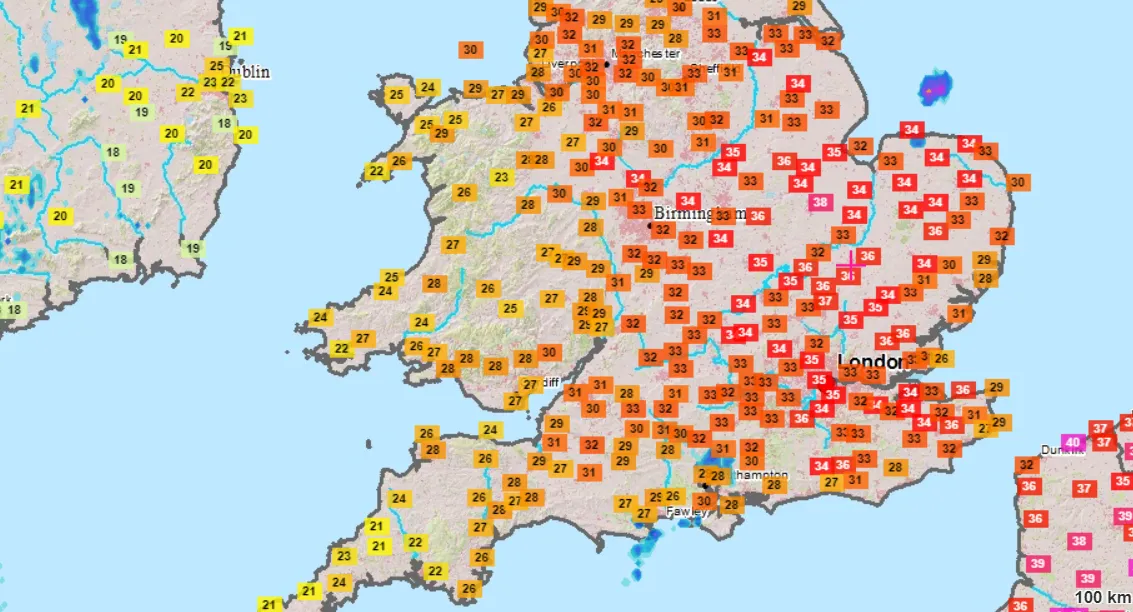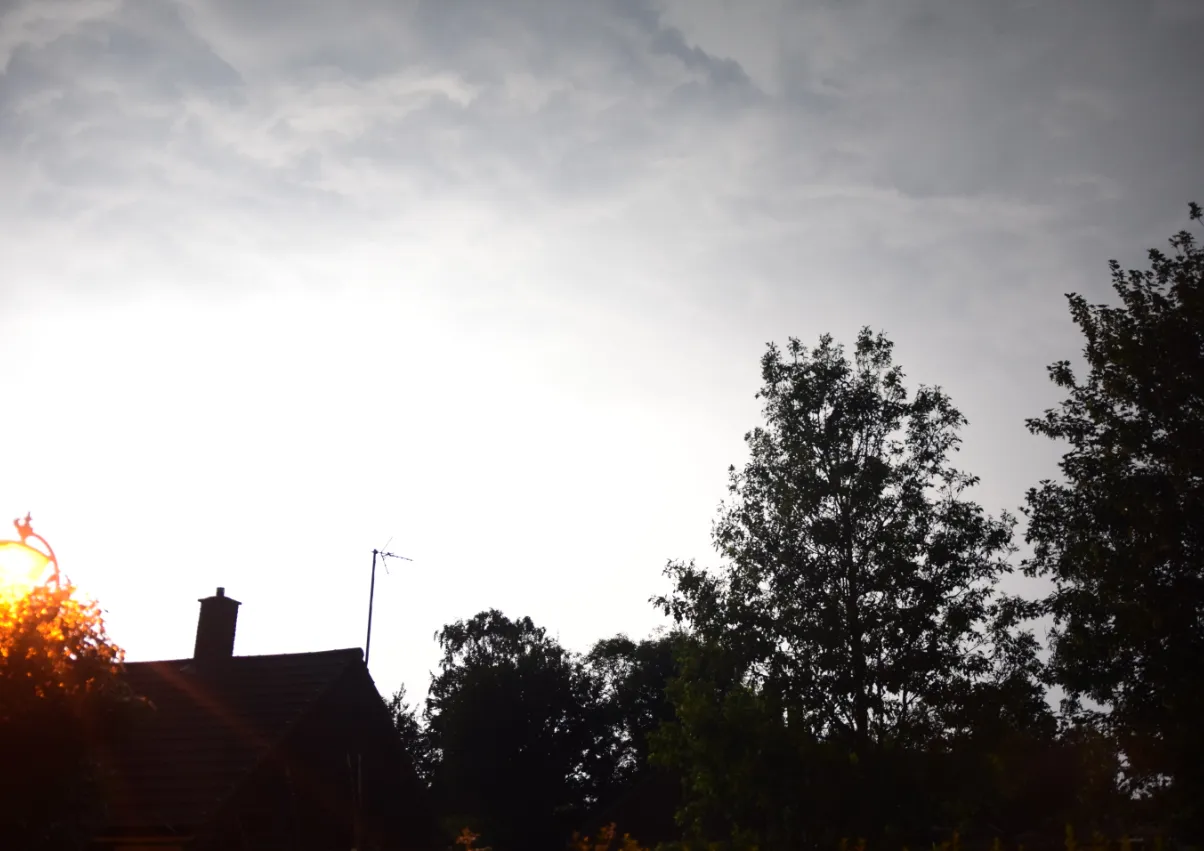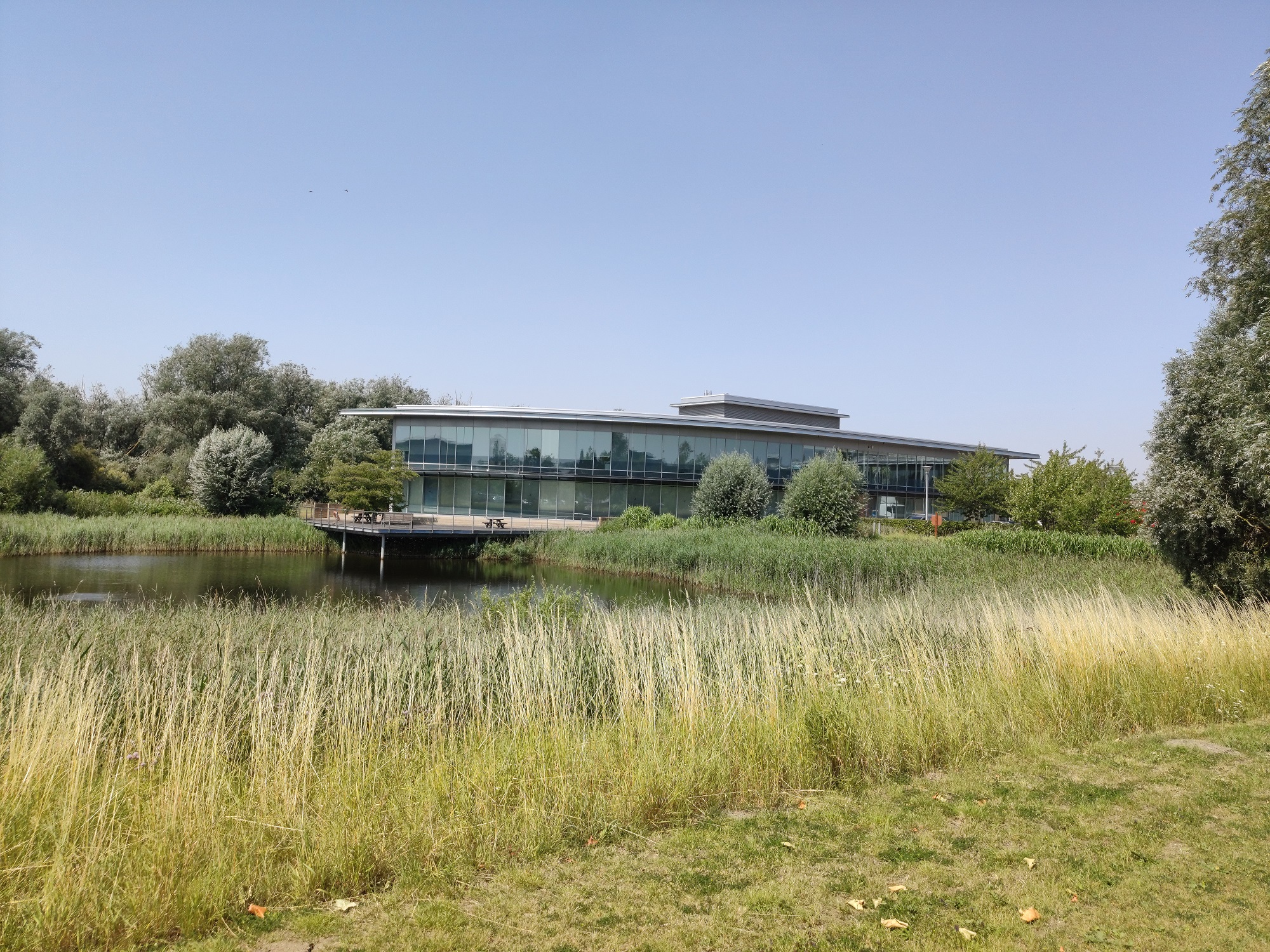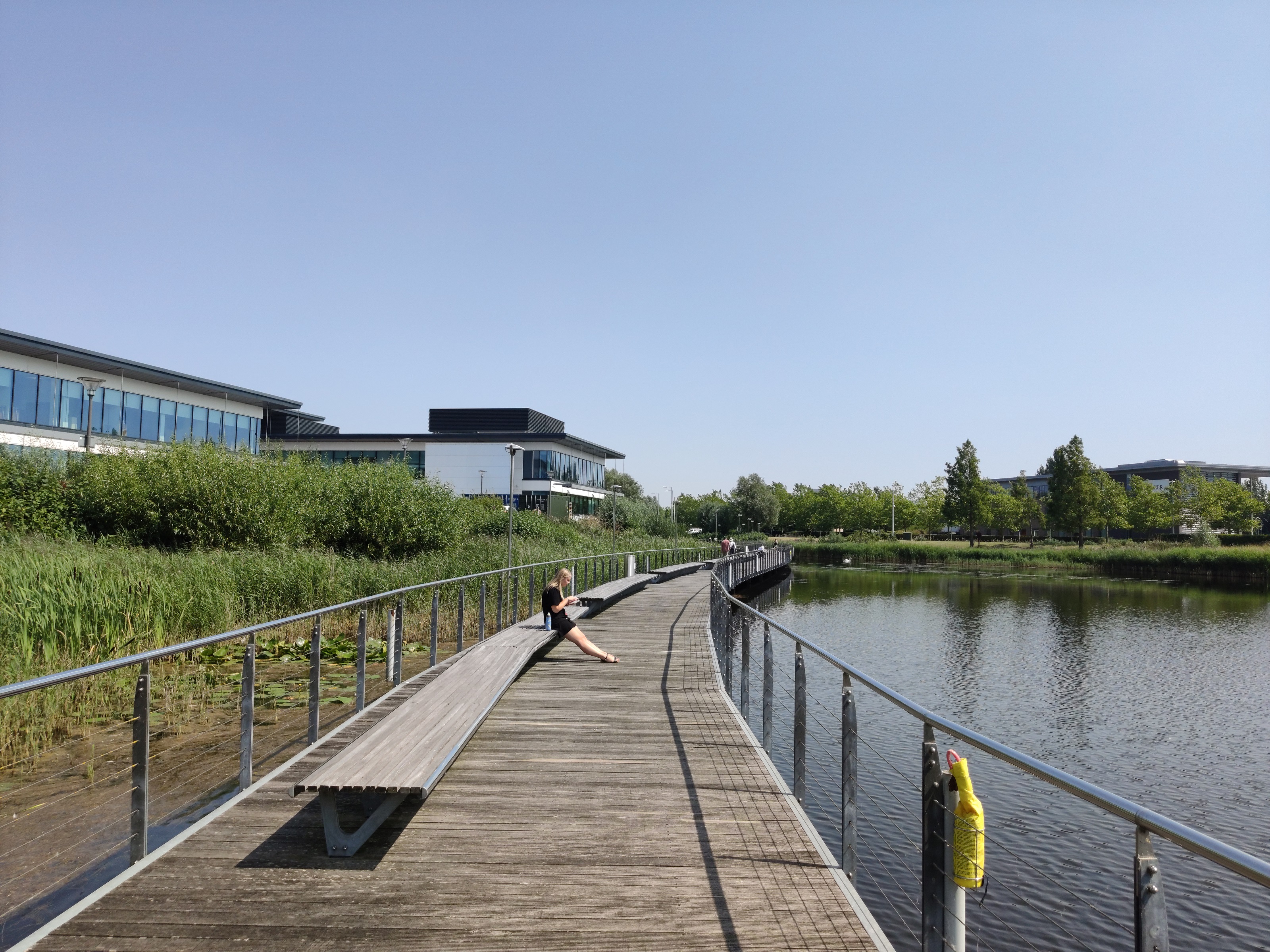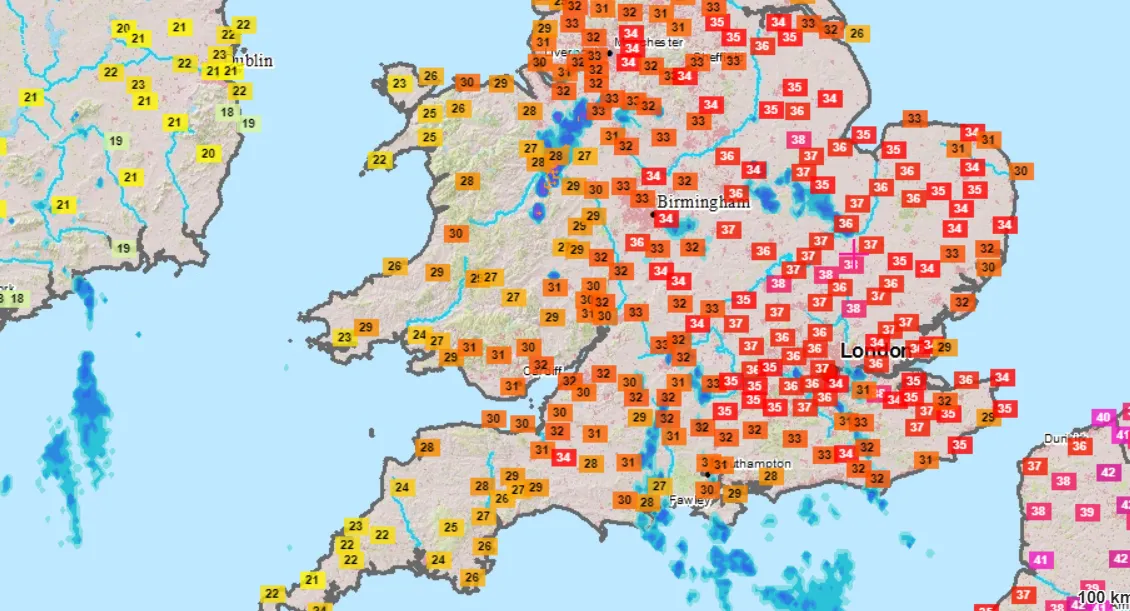Late July is usually the hottest period in Europe, especially in the countries located further from the Atlantic influence. Unless we are talking about the areas, that lie close to the western shore, then the highest temperatures fall in August usually. Living in Poland I always deemed this period of the year as something like a summer breakdown, when we are facing a considerable heatwave, else a flood. The last “summer breakdown” brought a heatwave to Poland, it was neither big (max. 34 Celcius degrees) nor long (lasting about 3 days only). I can frankly say, that Poland received only remnants of a vast heatwave, that hit Western Europe a few days before.
This is what this article is about. Because I am living in the UK now, I had an occasion to witness really hot days, that occurred 2 weeks ago in Britain.
Basically, the heatwave started to spread across the western part of the continent on Monday, July 22, reaching southern France. This day in the UK was dry and very warm with the temperature rising up to the high twenties in the southeast part of the country. This temperature is quite normal at this part of the year, although used to not happen very often. July is not the warmest month in the UK, at least it wasn’t in previous years. In marine climes, where an influence of big water areas takes hold, the warmest and coldest months fall a bit later. Comparing it i.e to central Europe it occurs around a month later.
A severe temperature rise was recorded on Wednesday, July 23. In London, the mercury reached more than 30 degrees. It was the first part of the big heatwave, which was about to come.
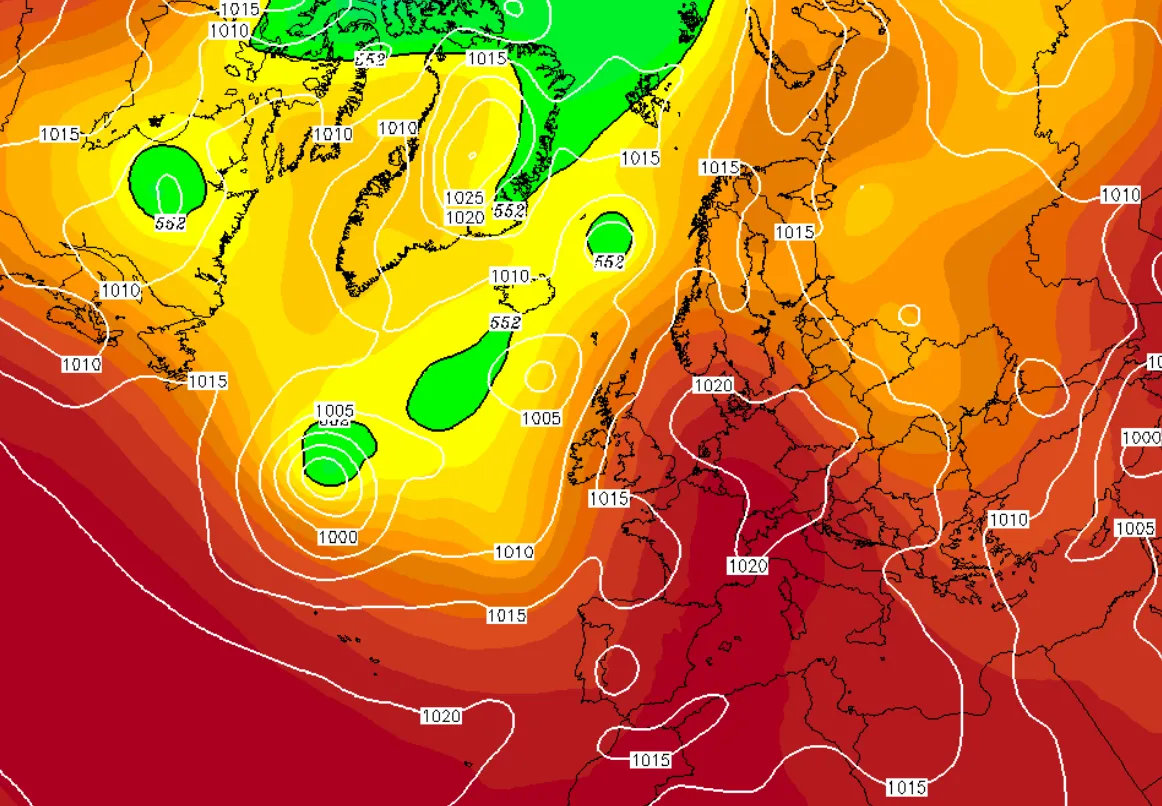
The responsibility for this synoptical situation took low-pressure systems, located in the North Atlantic region as well as the high-pressure area lingering above Central Europe. It made favourable conditions for a tropical air mass to come through from Western Sahara.
In the first stage, this air mass was really humid. It caused sparkling downpours and serious thunderstorms across the UK at night between July 23, and 24 (Pic. 2 – 6) keeping the temperature as high as under tropical night conditions.
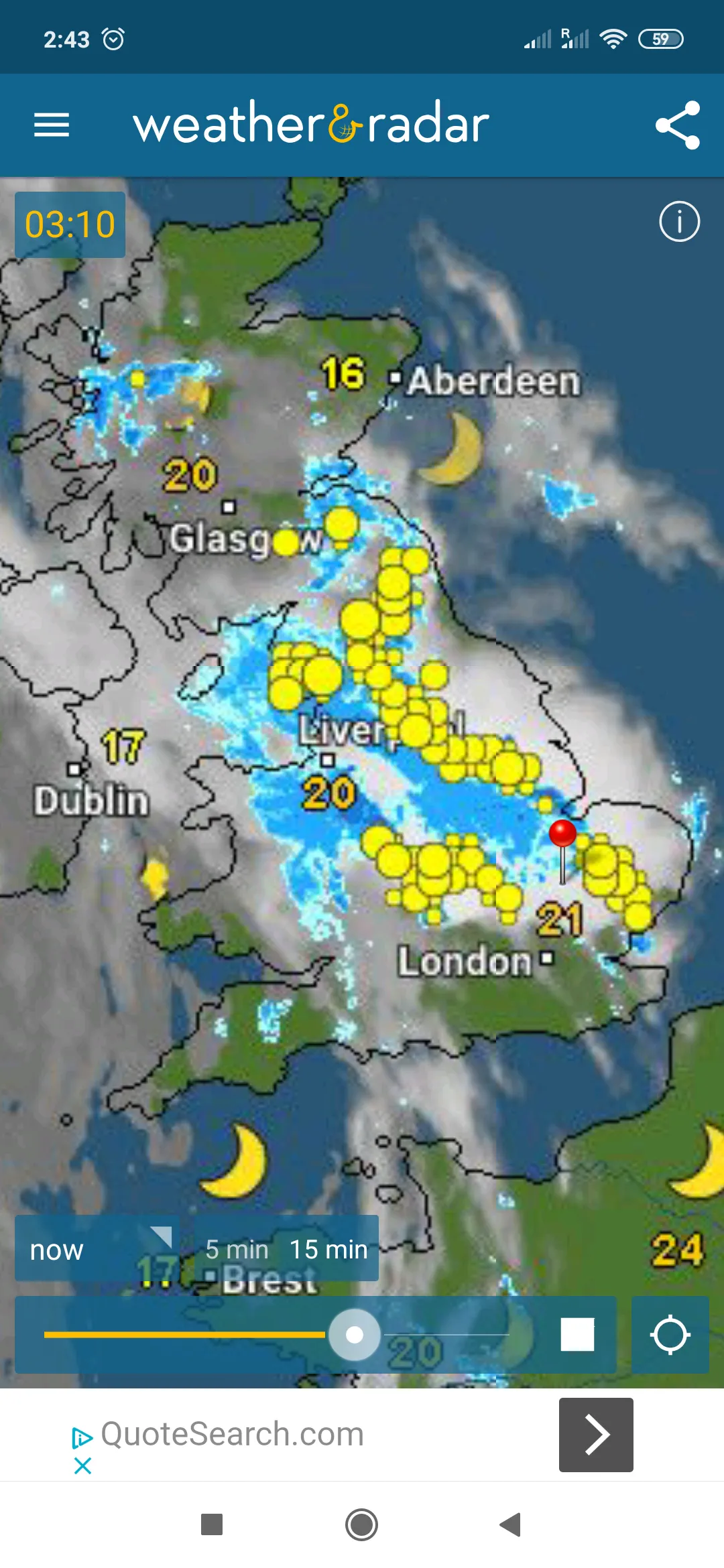
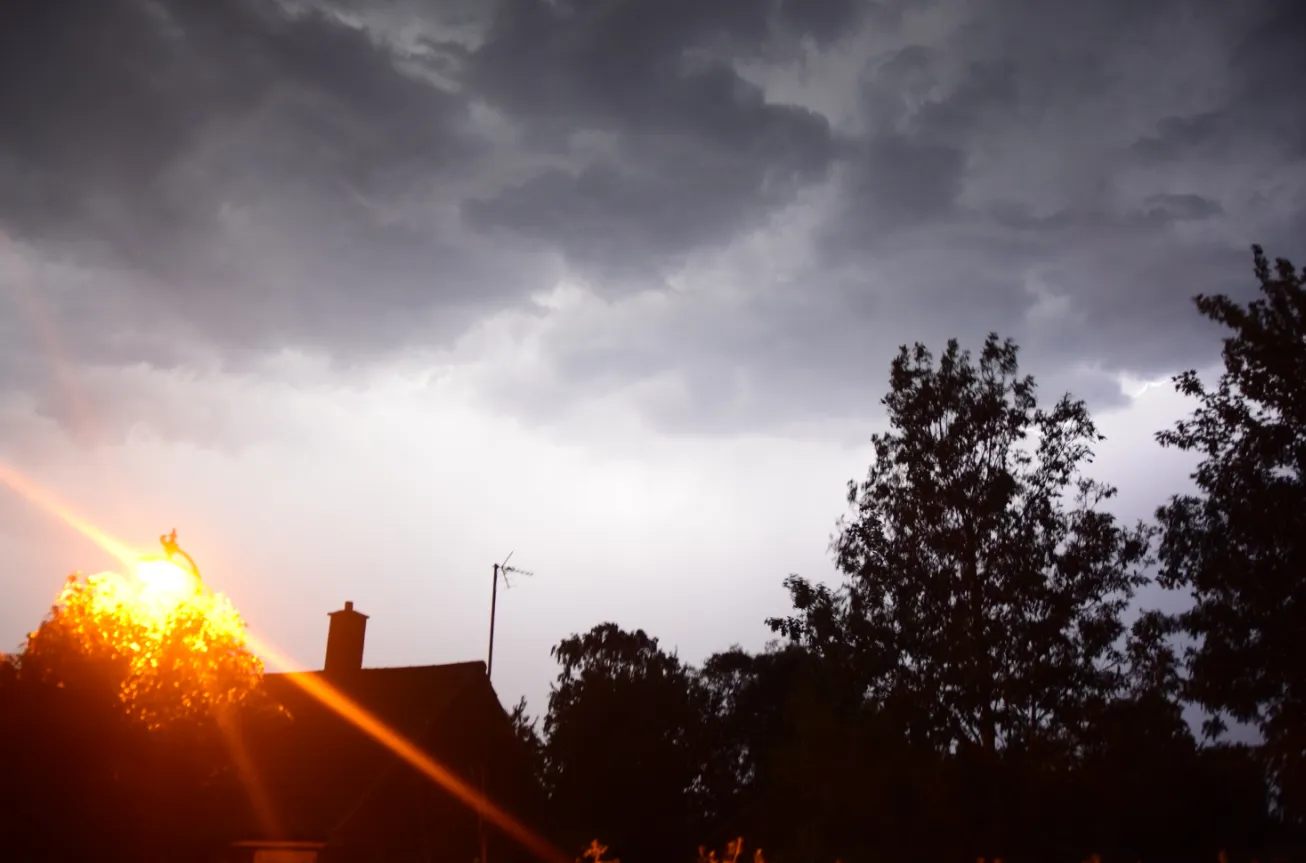
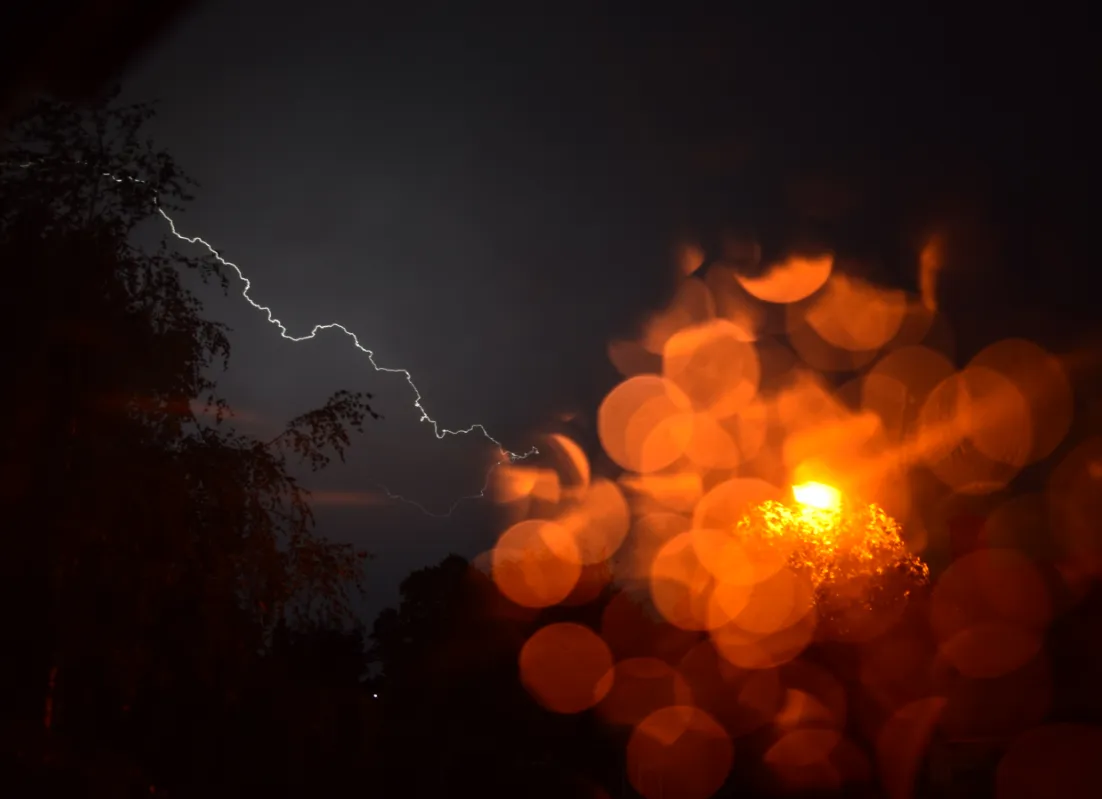
These thunderstorms preceded a hotter day with the temperature hovering around 32-33 Celcius degrees in the south-eastern UK. At the same time in France, the mercury reached about 40 Celcius degrees (Pic. 7). After these heavy rainfalls, I could spot Saharian dust on my car too, which explained where this air mass had originated.
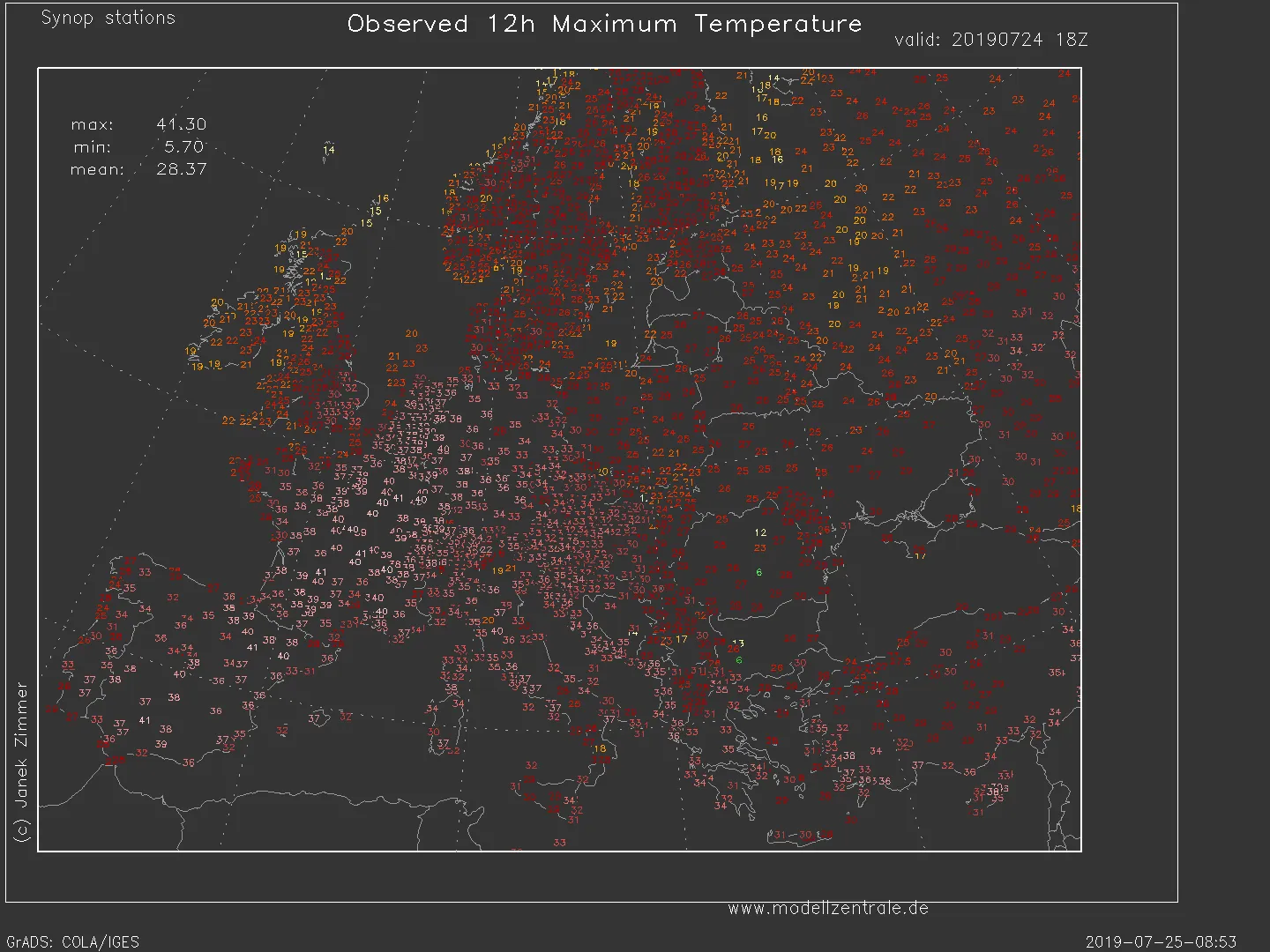
An extremely hot day brought also a tropical night across the western part of the continent. On the July 24/25 night, the temperature hasn’t dropped lower than 24-25 Celcius degrees in places in France (Pic. 8).

That was the moment, when the most intensive hot plume from northwest Africa swept through southwest Europe, preventing Spain and French Mediterranean regions from record-breaking temperatures. Once the Sun rose, this air mass warmed up very quickly on the following day, Thursday, July 25, making it the hottest in Western Europe ever.
In the United Kingdom, even in the morning hours, the mercury skyrocketed into values not really often observed in this country (Pic. 9).

The hottest moment ever was still to come. Usually, in the marine climes, the hottest moment of the day falls in the late afternoon, instead of earlier hours such i.e. in Central Europe. In Britain basically, the warmest period of the day occurs about 3-4 pm (Pic. 10), whereas in Poland it’s about 2 hours earlier.

Despite quite strong wind (19-21m/s), the temperature rose as the day proceeded. At about 1 p.m., the temperatures in the UK were nearly the record values (Pic. 11), being higher in late hours (Pic. 12, 13).
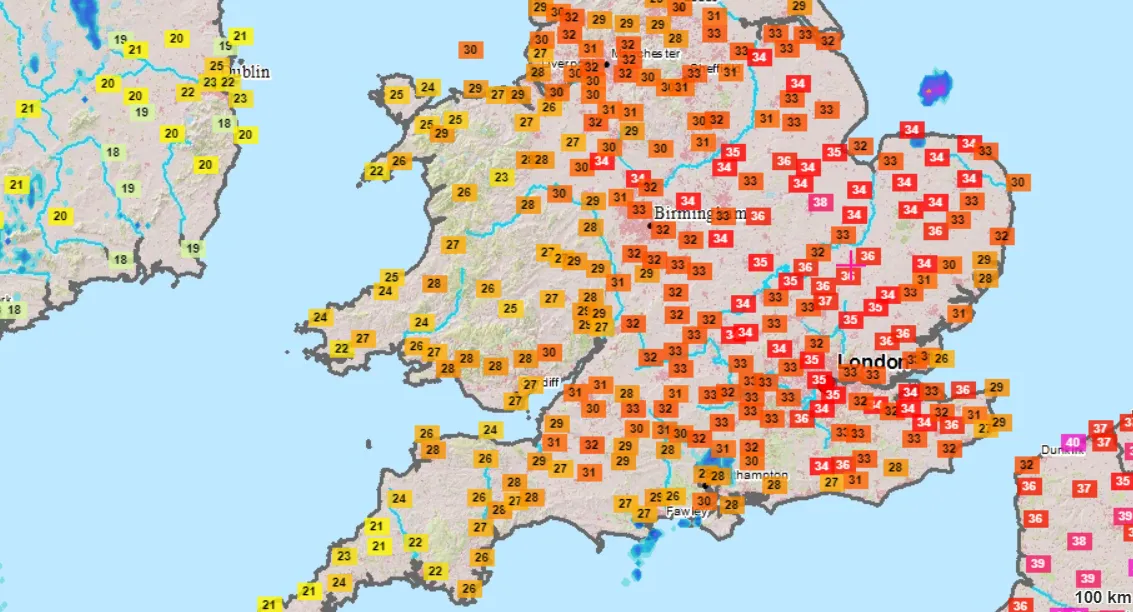
The weather situation in the UK during the hottest day was specific and classic at once. The specificity of this day was driven by a quite strong wind from the south, in spite of which temperature was rising. Usually, the wind should hinder the temperature from growing up. On top of that, the temperature progressed in spite of patchy cloudiness and showers in places. On the other hand, a classic situation arose out of the cold front, located west of England, which can be easily spotted on the temperature maps shown above. The heat plume was elongated from south to the north, keeping away from Cornwall, Wales, and decidedly Ireland.
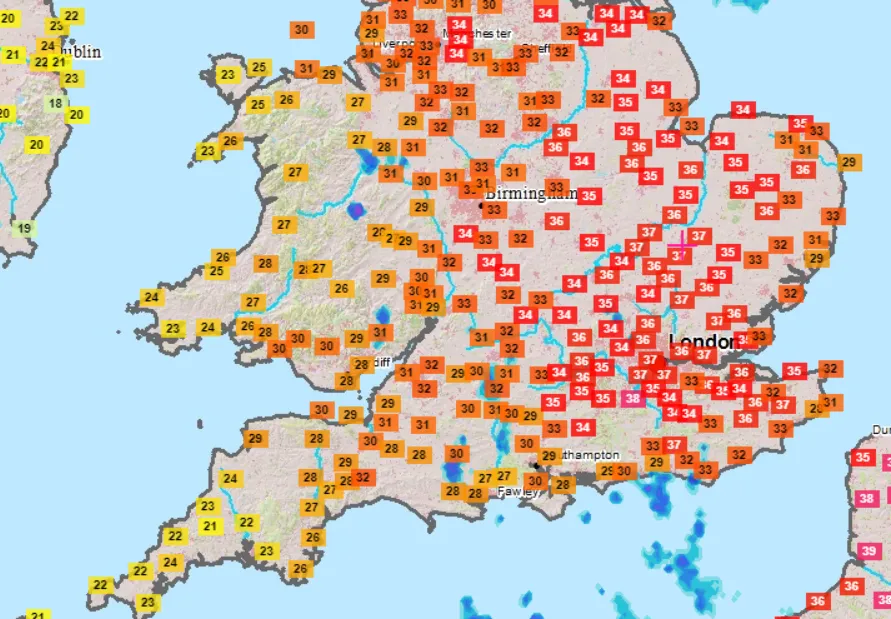
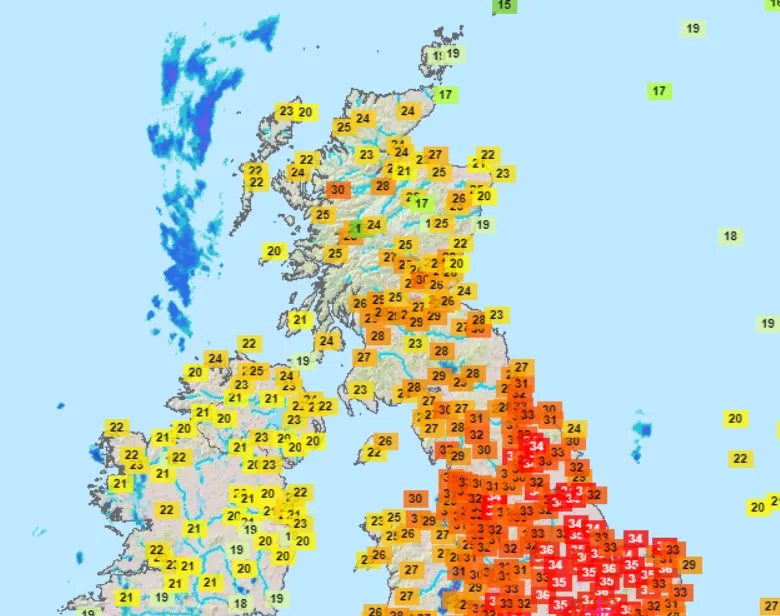
In Cambridge, despite terrible heat, the inching cold front from the west was clearly noticeable. Usually, we can feel at least a moderate wind from the south. Apart from that, the cloudiness was increasing. I went outside of my workplace to feel the high temperature. I felt like my eyes were going to be burned shortly. The humidity combined with extreme heat was awful and dangerous. The humidex must have been very uncomfortable for humans. 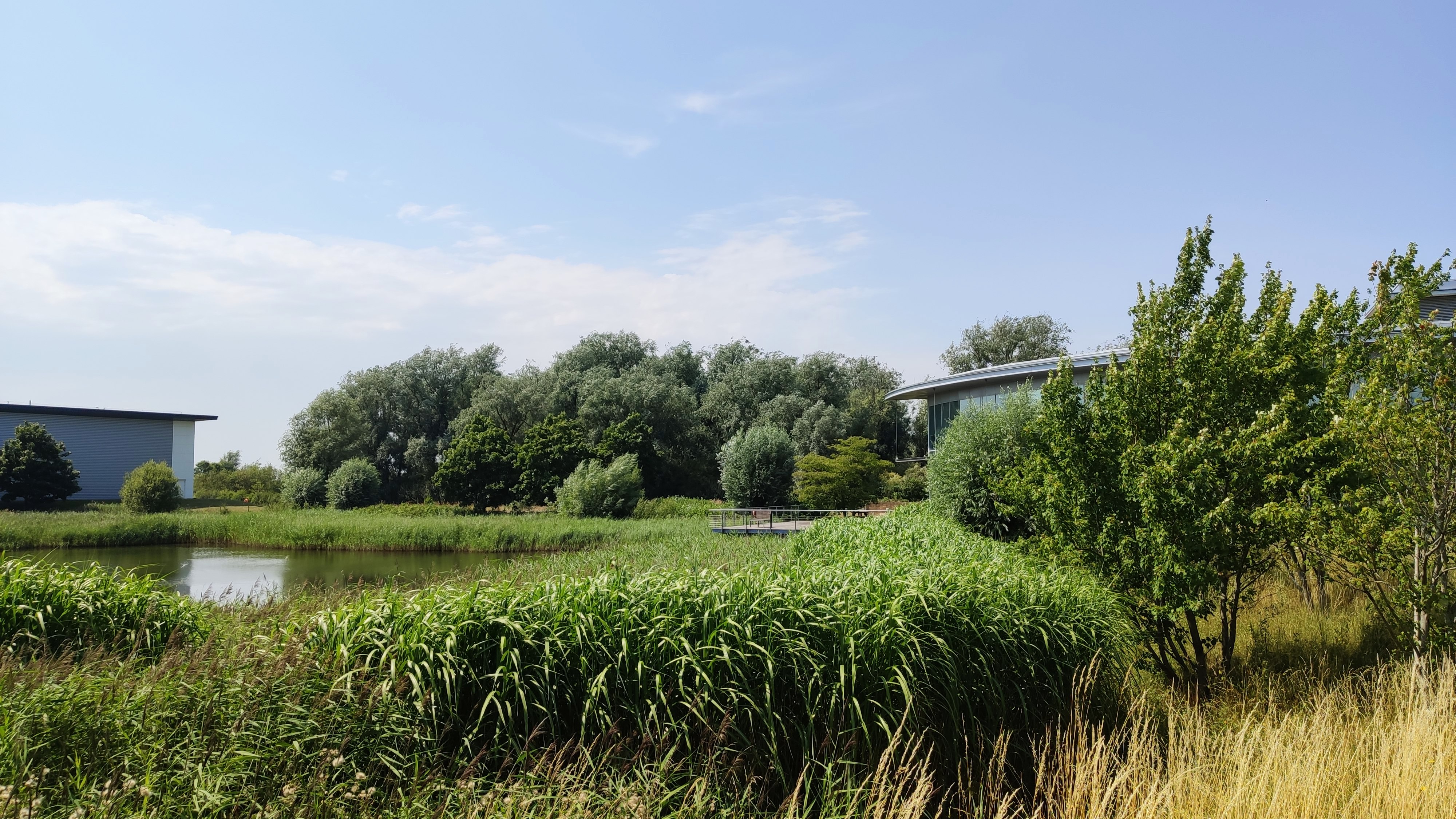


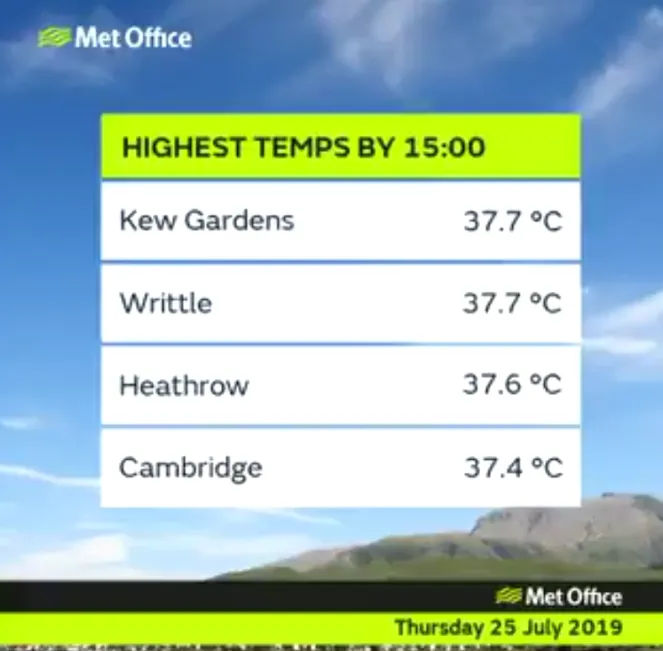
The photos and timelapse above show windy, although very hot conditions just before the cloudiness started to appear in the sky. In spite of the cloud cover changes, the maximum temperature occurred at about 4 p.m. (Pic. 26-29).
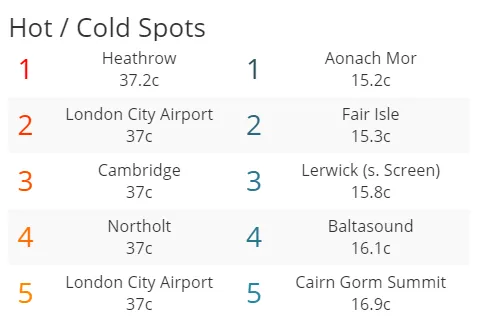
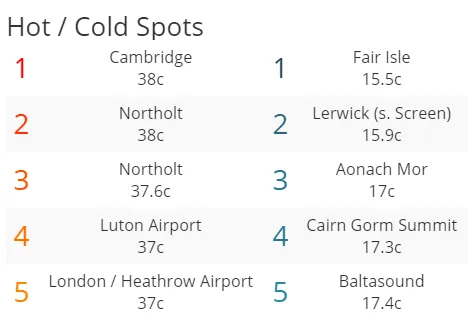
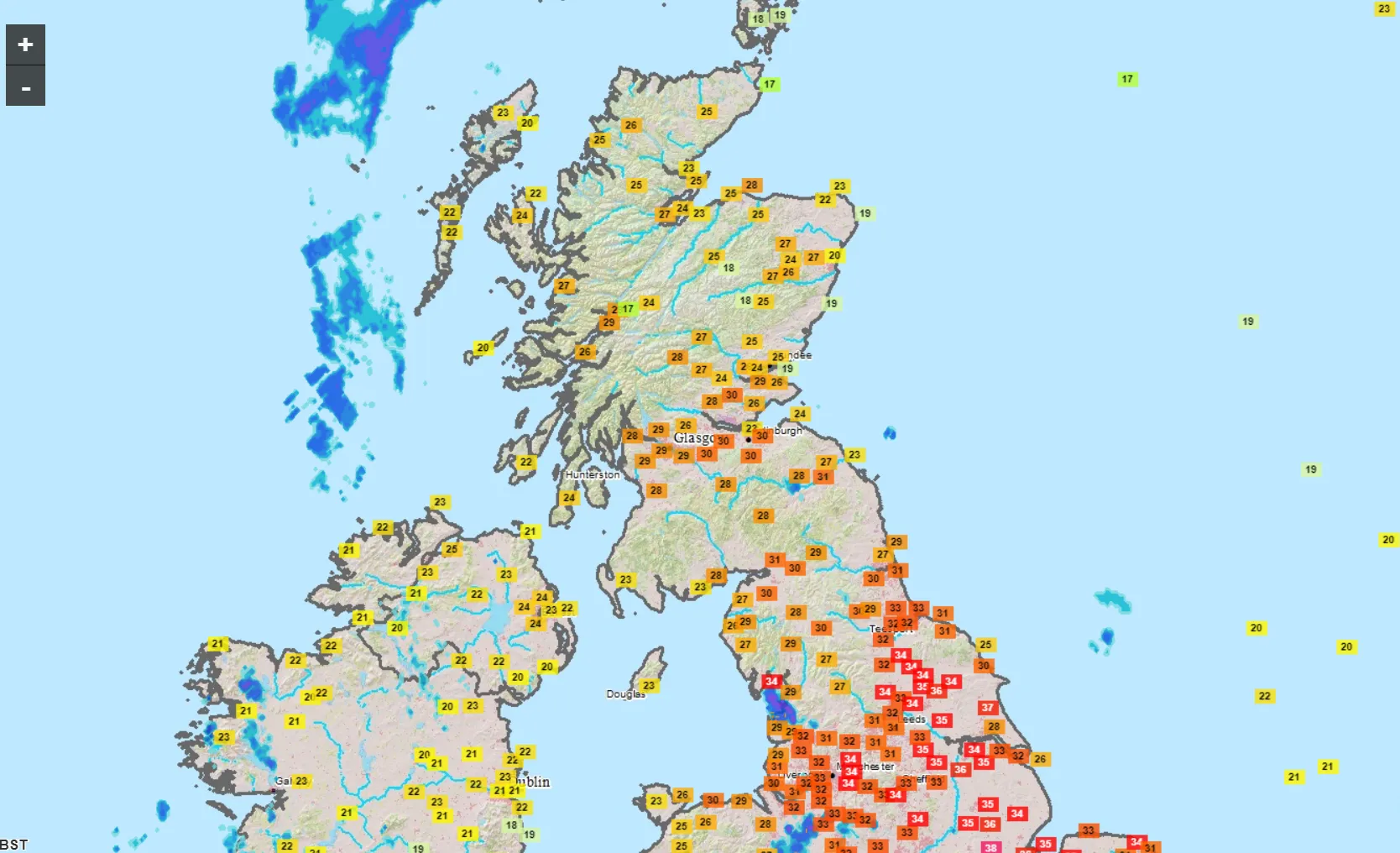
The July temperature record has been broken in England, where the temperature reached 38,1 Celcius degrees. The next day, after the verification it was found, that in Cambridge Botanic Garden temperature reached 38,7 degrees Celsius, setting an absolute temperature record in the UK. The previous one had been set 16 years ago in Kent.


July 25 was the hottest not only in England and Scotland but also in the whole of Western Europe (Pic. 31). Record-breaking temperatures occurred twice, day after day in Germany, Benelux, and France (Pic. 34-35).
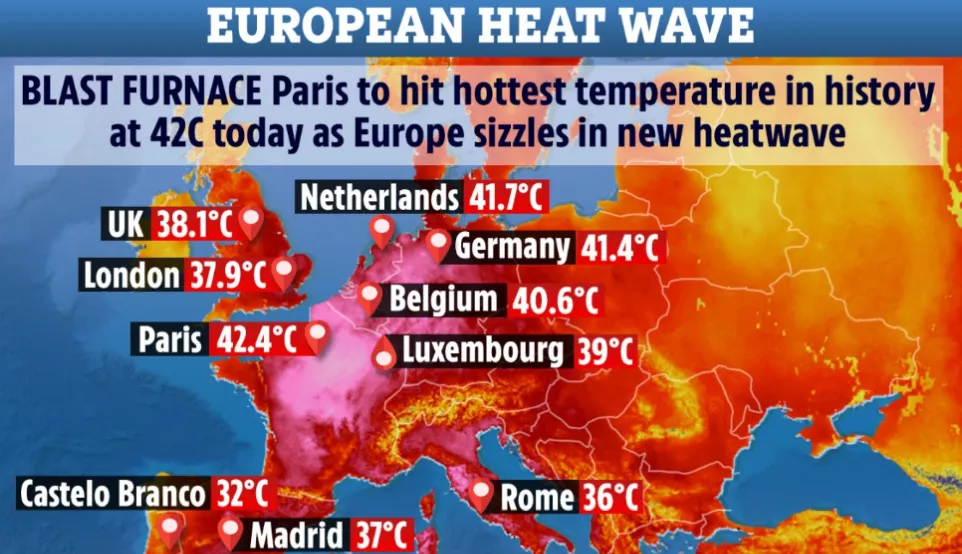
It resulted especially a road tarmac meltings across these countries (Pic. 33).

In Paris, people were worried about the Notre Dame vault ceiling collapsing during the extreme heat.
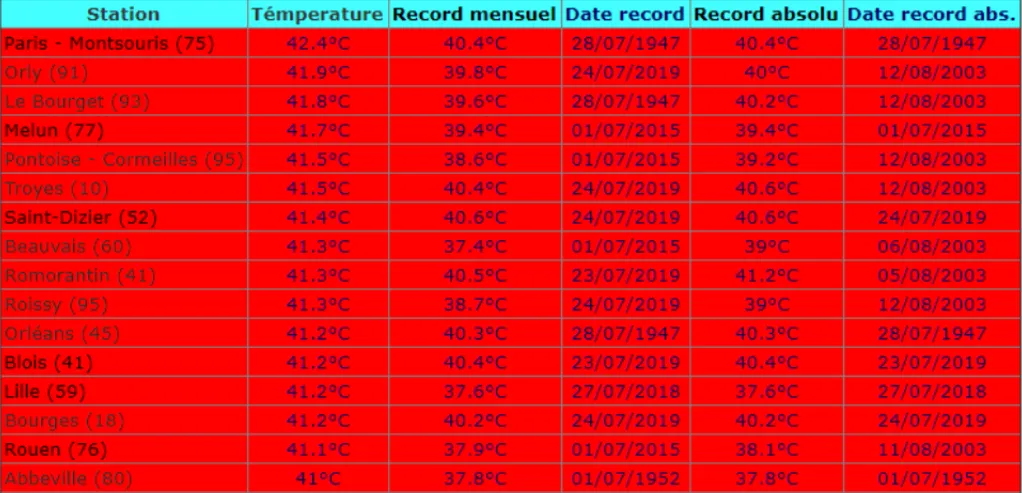
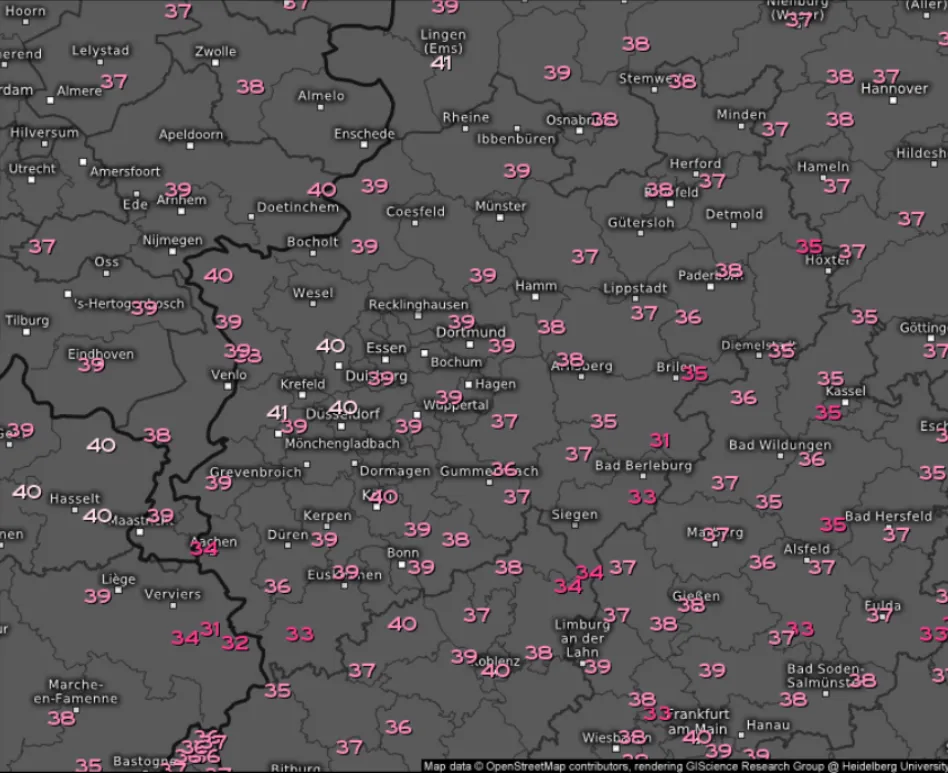
There were patchy thunderstorms during the Thursday, July 25 afternoon and evening in England, bringing a bit fresher air from the west. The grand Saharian plume remained in Western Europe till the following day, July 26, bringing the highest night-time temperatures ever (Pic. 36). There were places in Benelux, where the temperature didn’t drop lower than 26 Celcius degrees!
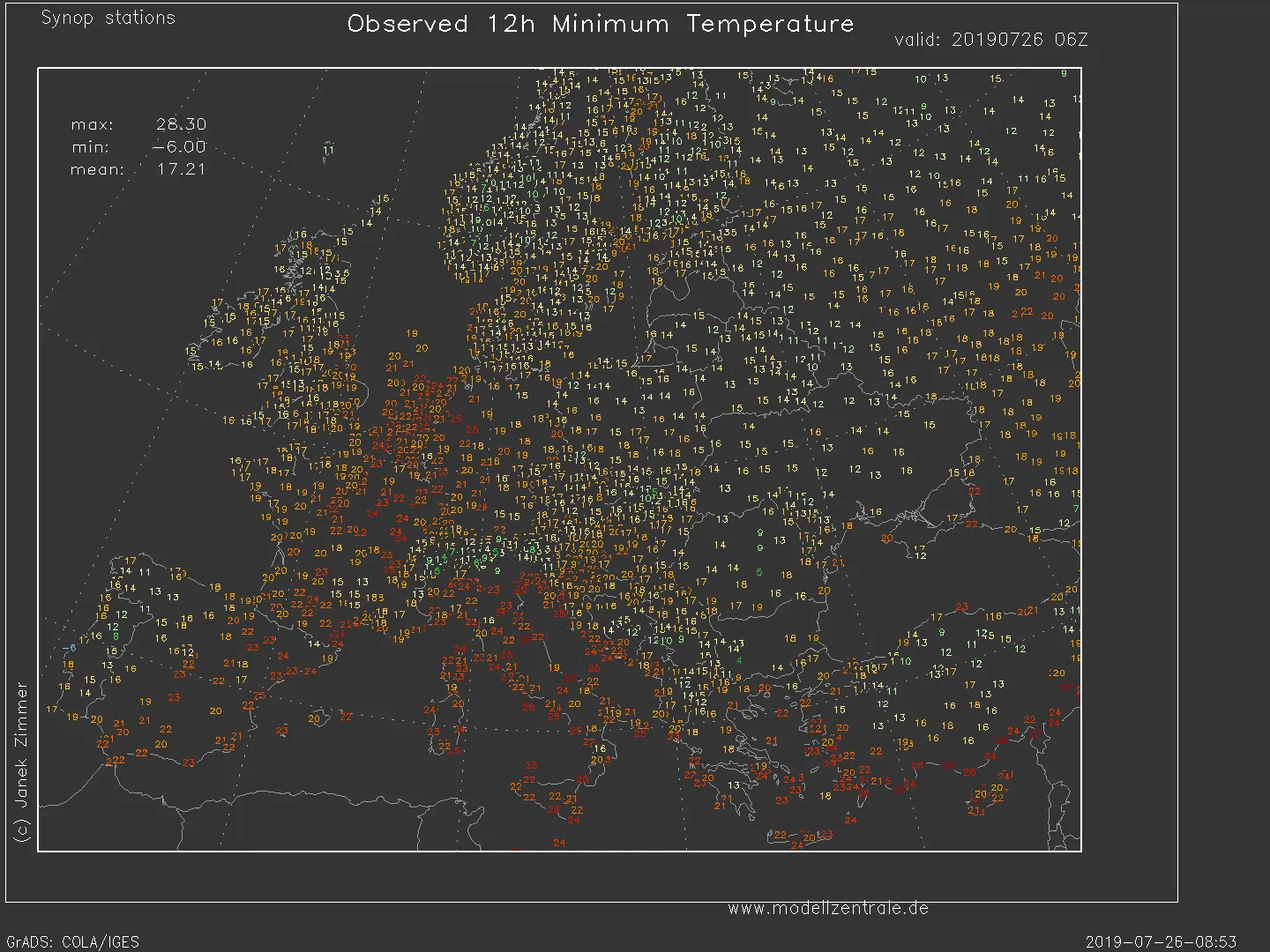
Friday, July 26 was much better in England. The heat remained only above the easternmost parts of the island, bringing low thirties in Suffolk and Essex. Meanwhile, MetOffice.uk announced the highest temperature ever, measured in Cambridge Botanic Garden – 38,7 degrees of Celcius! (101,7 degrees of Fahrenheit).
WHAT’S NEXT WITH OUR CLIMATE!?
The climate is changing and nobody can deny, seeing weather like this. It will be brilliant if we keep the worldwide temperature rising at the 1.5 degrees of Celcius level by the end of this century. This is the threshold, where we can still hinder the dramatic changes happening on our planet. Otherwise, humankind is going to die or at least be dramatically reduced.
According to Linda Marsa – editor for Discover Magazine by 2200AD a human population will be confined to the northernmost parts of our Globe, where the climate conditions are marginally tolerable. It means, that as climate warming progresses, it triggers a lot of wars, famine, and massive migrations towards more tolerable areas. The intertropical regions are going to be no longer habitable due to extreme heat and severe weather incidents on an intermittent basis.
Heidi Cullen in her book says, that California in the future will suffer from extremely long droughts on the contrary to Greenland, which gives the people and farmers access to mineral resources and new farm-worthy grounds.
Everything is going to change, unfortunately without aftershocks. Once Greenland or Spitsbergen become habitable, both the World Ocean level will be increased a lot and we get new widely expanded desert areas in places, known today as tropic forests or savannas.
This is obviously a wide-scale topic, which I will develop in the future occasionally.
Mariusz Krukar
References:
- Cullen H., 2010, The weather of the future: Heat waves, extreme storms, and other scenes from a climate-changed planet, Harpercollins Publishers, New York.
Links:
- 2019-07-25 Theguardian.com: UK records hottest day of year and could hit new high of 39c
- 2019-07-25 Theguardian.com: Europe heatwave Paris forecast record hottest ever day
- 2019-07-25 Theguardian.com: All-time temperature records tumble again as heatwave soars the Europe
- 2019-07-25 Theguardian.com: Climate fears as the UK has second hottest day on record
- 2019-07-25 Thesun.co.uk: INFERNO! ‘Saharan plume’ 42C heatwave breaks all-time records across Europe and it’s so hot in Paris that Notre Dame could collapse completely
- 2019-07-29 Itv.com: Met Office confirms record UK temperature of 38.7C in Cambridge
- 2019-07-29: Bbc.co.uk: UK heatwave: Met Office confirms record temperature in Cambridge
- Accuweather.com: Europe heat wave by the numbers record breaking temperatures blasted France, Belgium, Germany, Netherlands, Britain
- Metoffice.gov.uk: Hottest July day on record for the UK
- Scorched Earth 2200AD
Read also:

